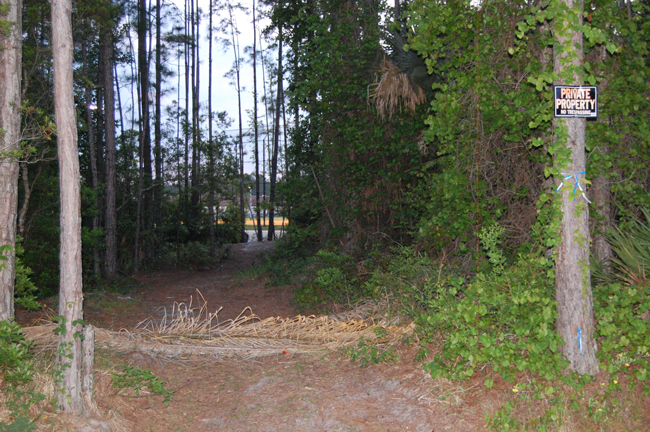
For a brief explanation of this occasional feature — the News-Journal in 5 minutes or less — read the top of the previous edition, below the gel.
![]()
The world on April 26 continues to be dead to the News-Journal’s front page. It’s one way to ignore all things Obama, financial reform, health reform (any word anywhere prominent on Florida’s op-out of the health care law?). And the Orlando Sentinel/National Examiner approach looks to be gaining favor: overwhelm the reader with one really big item (in this case, Derek Catron’s continuing and richly informative series on Volusia County’s ridiculously fragmented fire and ambulance services), throw in a couple of other items to fill out the page, and get out.
There’s a compelling piece on how a Catholic priest’s boffing a 14-year-old boy left the boy’s life in shambles, leaving room for just one page-one scratcher, again in the lower-right gator-bites-dog corner: a jewelry thief who got away in Volusia County a year ago was caught in Tallahassee. Tallahassee police, in other words, did what Daytona Beach police couldn’t do, but Daytona Beach’s Mike “everybody’s-a-scumbag” Chitwood takes the credit anyway, with a quote right out of Rome’s last days: “Here’s a guy who has been robbing and pillaging for a long time…” No Chit Sherlock.
That’s it for the front page. Three bits, unless you count Daytona Beach Mayor Glenn Ritchey’s uncharacteristic supermodel stripping at the bottom of the page (“I am Daytona Beach and So Are You”) as something newsy. Ritchey’s plugging the city’s website on Botox.
The editorial page runs another one in its — or rather, more accurately, in the new publisher’s pandering — series of booster-club columns from local leaders with pom-poms for ink. (Today’s herkie jumper: Candace Lankford of the Volusia County School Board.) The page also brings Ed Meese out of his crypt at the Heritage Foundation. Meese, who may or may not star as Leonid Brezhnev in a History Channel extravaganza one day, was Ronald Reagan’s attorney general. Meese gave a meaning all his own to cock-blocking in the latter years of that administration’s prelude to disaster. It was Meese who, instead of chasing after lawbreakers in the administration, his own president included, played Refrigerator Perry to Reagan as the Iran-Contra scandal exploded all around. This is also the same Ed Meese who, as chief of staff for Reagan when he was governor of California, ordered hundreds of California Highway Patrol and local police officers, in addition to some 1,200 National Guardsmen, into violent action against the protesters at Berkeley’s People’s Park. The assault resulted in the killing of one student, James Rector, and injuries to some 70 people.
Now here’s Meese lecturing us about “overcriminalization.” Where’s John Carpenter when you need him to put these skeletal clowns in their place?
The News-Journal does have a local front today, including, miraculously, a Flagler story, and one only a week late (which is better than those that never appear), on the distempers at Ralph Carter Park. The story, focused on Marion Petruzzi, who’s leading the charge against the park’s “undesirables,” says something about the Petruzzis moving to Palm Coast five years ago to enjoy “the scenic view outside their Richardson Drive home” only to be jarred by the miscreance of young people loitering about the new park in the neighborhood. Scenic? Has the reporter been to that dive of a street? The Petruzzis live across from three empty lots sliced by a ditch, and in a row of houses carbon-copied out of a developer’s cookie-cutters. Ralph Carter Park, to say nothing about the bare-chested boys who occasionally lounge on their cars in the neighborhood, is the closest thing they have to something “scenic.” (The Palm Coast dateline on that story smells suspiciously of a desk nearer to Holly Hill.) Then again, the Petruzzis moved down from New Jersey, which forever excuses their definition of scenic.
There’s a curiously interesting Mark Harper piece on people who stand on street corners waving signs to attract customers to this business or that, though it’d have been more interesting to know the slave wages those wretches are paid (the workers or their employers wouldn’t say), or how that sort of advertising differs from other, far more popular forms of solicitations on Ridgewood Avenue. The rest of the page is forgettable.






























Leave a Reply